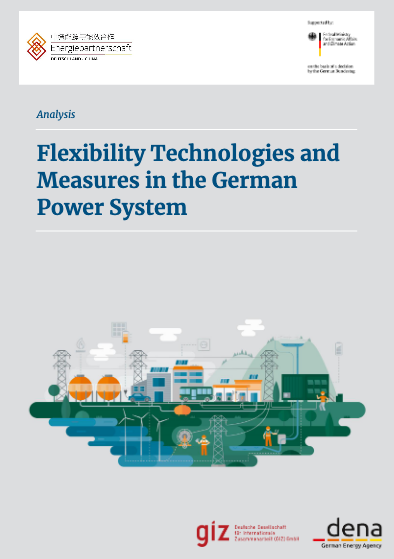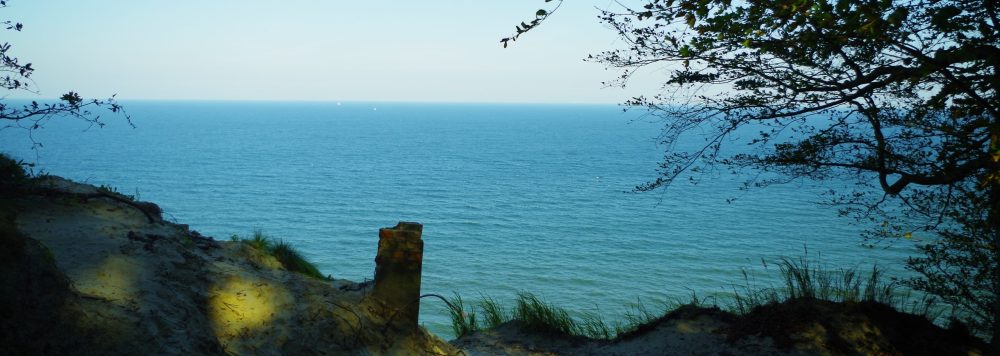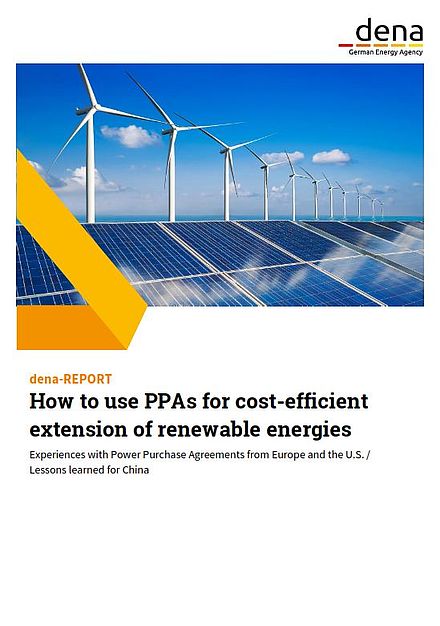
Report written by myself and Corina Bolintineanu “Flexibility Technologies and Measures in the German Power System” was published in January this year. The analysis was published by the German Energy Agency (dena) in the framework of the Sino-German Energy Transition Project led by the Deutsche Gesellschaft für Internationale Zusammenarbeit (GIZ) [German Society for International Cooperation] GmbH . The project supports the exchange between Chinese government think tanks and German research institutions to strengthen the Sino-German scientific exchangeon the energy transition and share German energy transition experiences with a Chinese audience.
Here the Executive Summary of the publication:
“Germany’s goal of climate neutrality is just around the corner. In order to reach it by2045, Germany will need to increase its renewable energy production and,alongwith it, its power system flexibility. For the past decades, solutions have been developed and implemented, such as the establishment of market rules that enable competitionbetween flexibility measures, along with a technology-neutral approach that ensures a broad mix of technologies and participants.
On the way to a power system based entirely on renewable energy, conventional power plants, in particular gas power plants, will continue to play a role. Today, coal-and gas-fired power plants are the mostrelevant source of flexibility in Germany. However, the phase-out of coal-fired power plants by 2038at the latest,and of nuclear power by 2022 will lead to an increased use of other flexibility options.Large-scale batteries, which are a fitting solution for providing primary control energy and for industrial applications, and small-scale batteries,which provideuser-related flexibility in private homeswill play an increasingly important role.
Flexibility will continue to be provided by biomass-and biogas-operated andpumped-storage power plants, currentlythe secondmostimportant source of flexibility. In addition, technological development as well as the phase-outof financial and regulatory barriers, particularly the double burden requiring operators to pay consumer fees twice, may trigger the use of power-to-X technologies, which are not yet widely deployedin Germany.
Price signals on the wholesale market are expected to triggerhigherdemand-side flexibility in the industry and small and medium-sized enterprises. Residential demand-side flexibility will play a greaterrole withthe gradual introduction of intelligent measuring systems (smart meters) and other digital technologies.
Last but not least, system operation regulations will need adjustments in order to increase grid flexibility.
The report provides a detailed overview of the main flexibility technologiesand measures in the German power system. While it reflects the status quo, it alsoindicatesneedsfor thedevelopment ofthe power system to reach climate neutrality and providesvaluable input for ongoing policy debates.”
The report is available on the website of the Sino-German Energypartnership as well as on the dena website.



